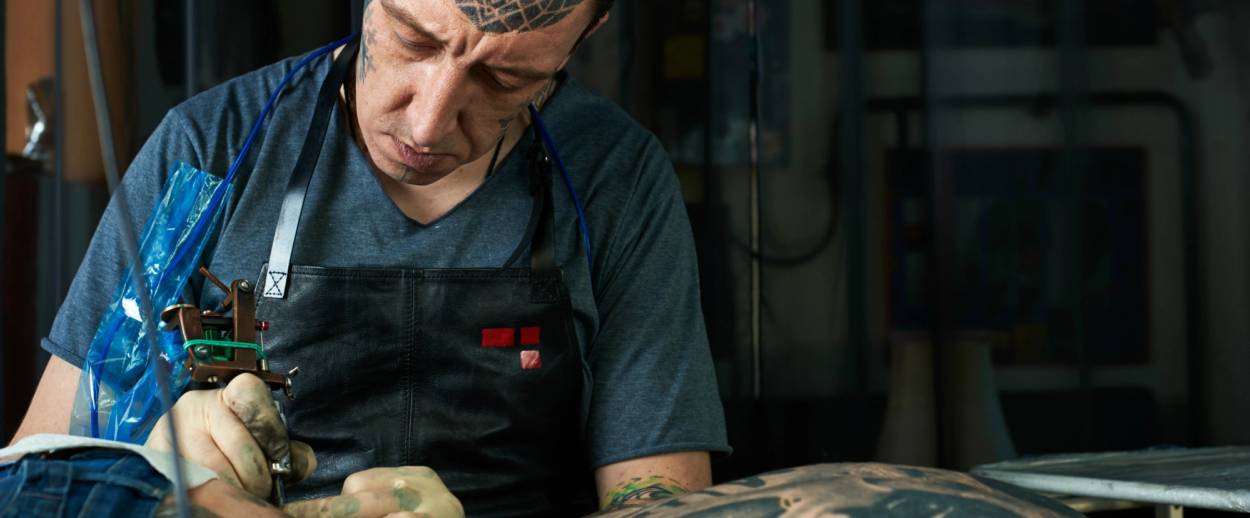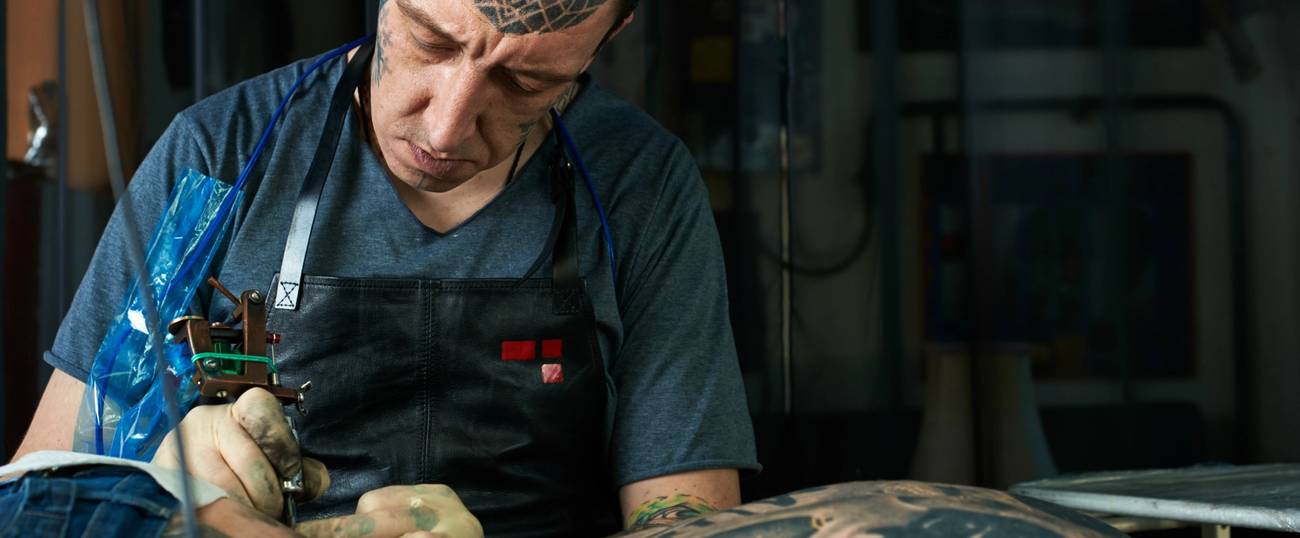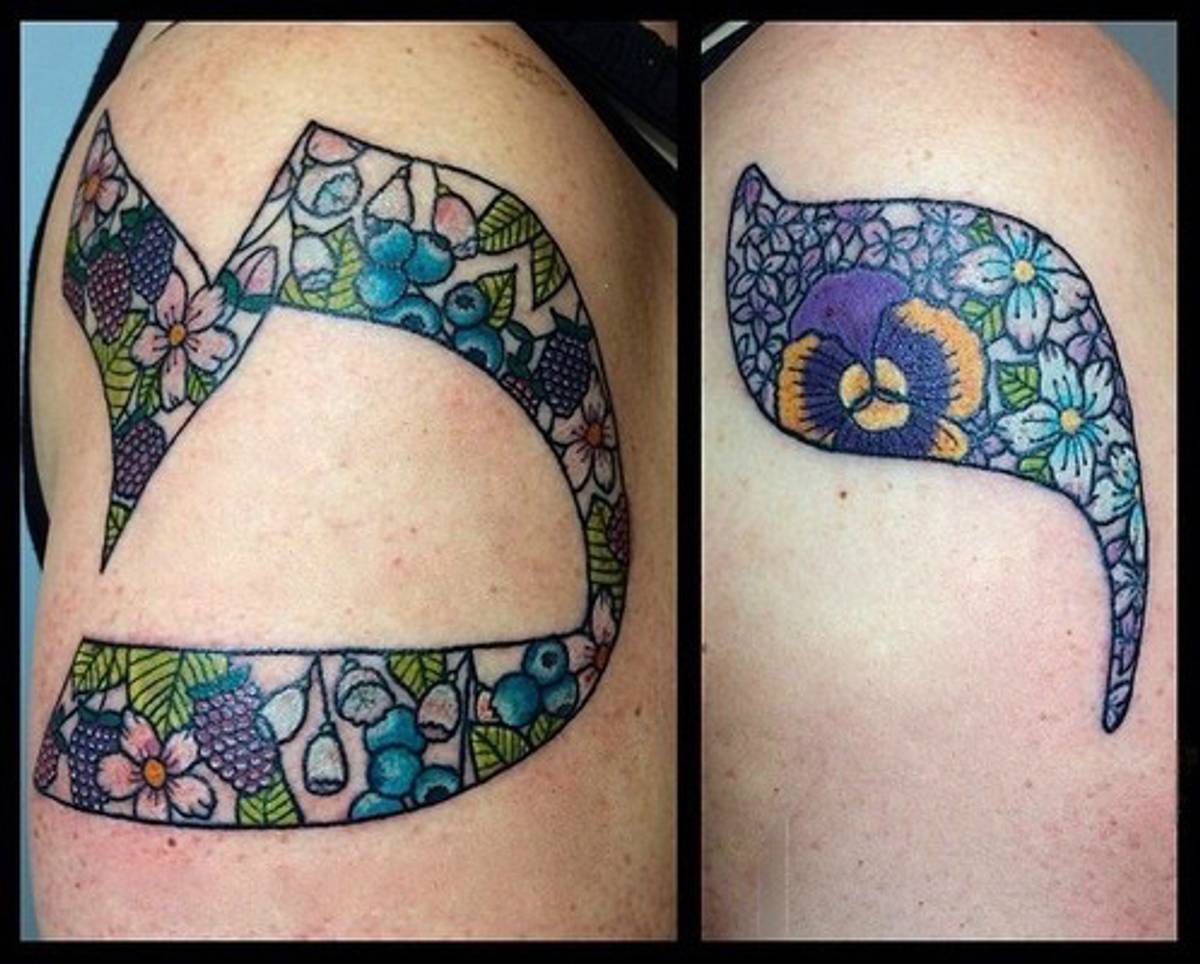Sun’s Out, Guns Out, Ink Out, Breathe
My Hebrew arm tattoos are out in full this summer. But it’s taken me a while to get comfortable having them in plain view.




It is summer, a time of sleevelessness. Yet for the last couple of summers, I hesitated to show my upper arms. Not because of tzniut, not because of self-consciousness about bingo wings, but because I have tattoos. But this summer, sun’s out guns out!
And not just any tattoos. I have the Hebrew letters yud and mem. And they are large. And I feared the wrath of Orthodox Jews in my New York neighborhood, the East Village/Lower East Side, as well as the raised eyebrows of my extended family.
These are not my first tattoos, but they’re the first you can see if you’re not married to me. They are my kids’ initials—yud for Yosefa, Josie’s Hebrew name; mem for Michal, Maxie’s Hebrew name. The yud is filled with Josie’s favorite flowers—lilacs, Callery pear blossoms, a purple pansy. The mem is filled with Maxie’s favorite fruit and their leaves—blueberries, raspberries, blackberries. They took around five hours to do.

I am quite conscious of the resonances of tattoos. I know some Jews associate them with the Holocaust, some hold the (mistaken) belief that they are a bar to burial in a Jewish cemetery, and some just think they’re déclassé and hideous. But for me, getting Hebrew tattoos was significant. They were a tribute to my beautiful girls, the ones anti-Semitism failed to wipe out. They were a way of saying I was extremely connected to my Jewishness, but not in an ossified way. And they were a very public statement, to the world, of my identity—a marker I chose rather than one that was forced upon me, like a yellow star or number.
Their permanence was part of the appeal. They were a challenge: Look and think. They are not tiny modest Sanskrit characters (phhhttt) or dolphins. They are in your face. So why was I so chicken to reveal them?
It is not one of my most endearing characteristics that I like to provoke but then shy away from confrontation. (My dad, a braver person than I, was a provocateur who welcomed the consequences of being a provocateur.) I do not like the look of people wrinkling their noses in disgust. So I was judicious about wearing cardigans among older relatives and in Jewish settings. But then I wondered: Why had I spent so much money and time and thought on something I wasn’t going to flaunt?
Shortly before Maxine left for camp this summer, my husband, Jonathan, and I went skating with her on a Sunday in Prospect Park. The rink was packed with Orthodox Jews. And I got sweaty, so I tied my cardigan around my waist. For a long time, the Orthodox folks didn’t notice. Their eyes skimmed right over me as someone not of their world. But then I skated by a large family sitting on a bench at the edge of the rink. A little girl looked idly past me, and then her gaze snapped back and sharpened. She poked the girl next to her and pointed. I’d moved past them now, but on my next loop around the ring, I saw the entire bench gaping at me. There was no fury, only confusion.
After my family skated a bit, we sat down at the bar next to the rink for a drink and snack. A Bernie Sanders lookalike came over and said, “I just want to tell you I love your tattoos. They’re beautiful.” At a family baby naming at a cousin’s house, I took off the cardigan again. I could see that there were some nudges and eyebrow-raises, but no one said a word to me. The sky did not fall.
So this sweltering summer, I’m going bare-armed. I was about to add “without self-consciousness,” but that would be a lie. I’m not there yet.
It’s been interesting, though. I was amused that in shul and at an event at the Tenement Museum, I saw two people staring at me; I expected them to say something disparaging. But instead they both wrinkled their foreheads and said “chai?” Then both did a little surprised head-bobble when I said “no, this is a mem.” We see what we want to see. A technician at the hospital where I was paying a visit said challengingly, “Is that a yud on your arm?” I said yes, for my daughter Yosefa. Her expression was disgusted, but she didn’t say anything else and I didn’t volunteer.
I realize my vision of art and Jewishness may not square with everyone else’s, but that’s OK. I’m happy to have a conversation, as long as there’s politeness involved. And I don’t want to hide anymore. Especially when the farshtinkiner temperature is so high.
Marjorie Ingall is a former columnist for Tablet, the author of Mamaleh Knows Best, and a frequent contributor to the New York Times Book Review.